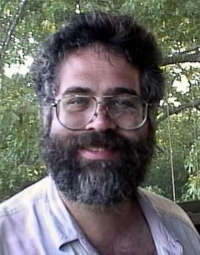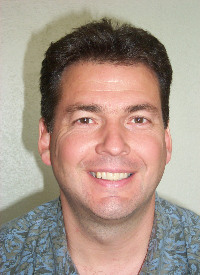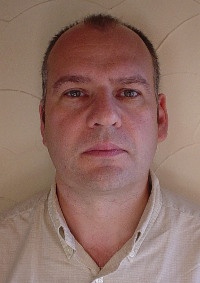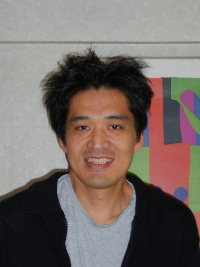|
Home
Call for Papers
Workshops
Program
Program Committee
Keynote Speakers
Submissions
Registration
Lodging
Travel
Sponsors



Artwork
by Dr. Cliff Pickover used by permission
|
|
Program Committee (Confirmed)
Hussein Abbass
Chris Adami
Takaya Arita
Wolfgang Banzhaf
Eric Bonabeau
Mark Bedau
Randy Beer
Richard Belew
Hugues Bersini
Seth Bullock
Rafael Calabretta
Angelo Cangelosi
Alastair Channon
Sung-Bae Cho
Thomas Christaller
Dave Cliff
John Collier
Kerstin Dautenhahn
Ezequiel Di Paolo
Marco Dorigo
Alan Dorin
Sevan Ficici |
Dario Floreano
Paulien Hogeweg
Gregory Hornby
Phil Husbands
Takashi Ikegami
Brian Keeley
Graham Kendall
Jan T. Kim
Simon Kirby
John Koza
Kristian Lindgren
Hod Lipson
Paul Marrow
Alcherio Martinoli
John McCaskill
Jon McCormack
Barry McMullin
J.J. Merelo
Alvaro Moreno
Satoshi Murata
Chrystopher Nehaniv
Jason Noble
Stefano Nolfi |
Naoaki Ono
Domenico Parisi
Daniel Polani
Jordan Pollack
Tom Ray
Eytan Ruppin
Hiroki Sayama
Moshe Sipper
Andre Skusa
Russell Standish
Luc Steels
Hideaki Suzuki
Charles Taylor
Tim Taylor
Guy Theraulaz
Peter Todd
Richard A. Watson
Barbara Webb
Michael Wheeler
Claus Wilke
Peter Wills
Andy Wuensche
Jens Ziegler |
Organizing Committee

|
JORDAN POLLACK
is a computer science and complex systems professor at Brandeis
University. His laboratory's work on AI, Artificial Life, Neural
Networks, Evolution, Dynamical Systems, Games, Robotics, Machine
Learning, and Educational Technology has been reported on by
the New York Times, Time, Science, NPR, Slashdot.org and many
other media sources worldwide. |
|
MARK BEDAU is
Professor of Philosophy and Humanities at Reed College. He is
President of the International Society for Artificial life, as
well as Editor-in-Chief of the journal. Mark has also been involved
in Alife 7 and Alife 8 conferences. His paper "Open problems
in artificial life" Artificial Life 6 (2000): 363-376 has
had a dramatic ongoing effect on the field. |

|

|
PHIL HUSBANDS
is Professor of Artificial Intelligence at the University of
Sussex, co-director of the Centre for Computational Neuroscience
and Robotics (CCNR) and head of the Evolutionary and Adaptive
Systems Group in the department of Informatics. He has conducted
and lead research in the application and development of bio-inspired
adaptive technologies for the past 18 years. |
TAKASHI IKEGAMI
is professor of physics at the university of Tokyo, School
for Arts and Sciences. He heads
the laboratory of artificial
life and complex systems. He has been developing various theoretical
models of biological phenomena using artificial chemistries and
neural networks, focusing in particular on the coupled recognizers
and the co-evolutionary systems. |

|

|
RICHARD
WATSON is a research fellow in population genetics in
the Dept. of
Organismic & Evolutionary Biology at Harvard University.
His interdisciplinary work has created publications in evolutionary
computation, evolutionary robotics, population genetics, and
artificial life. His current work is transforming results between
genetic algorithm theory and theoretical population genetics. |
|